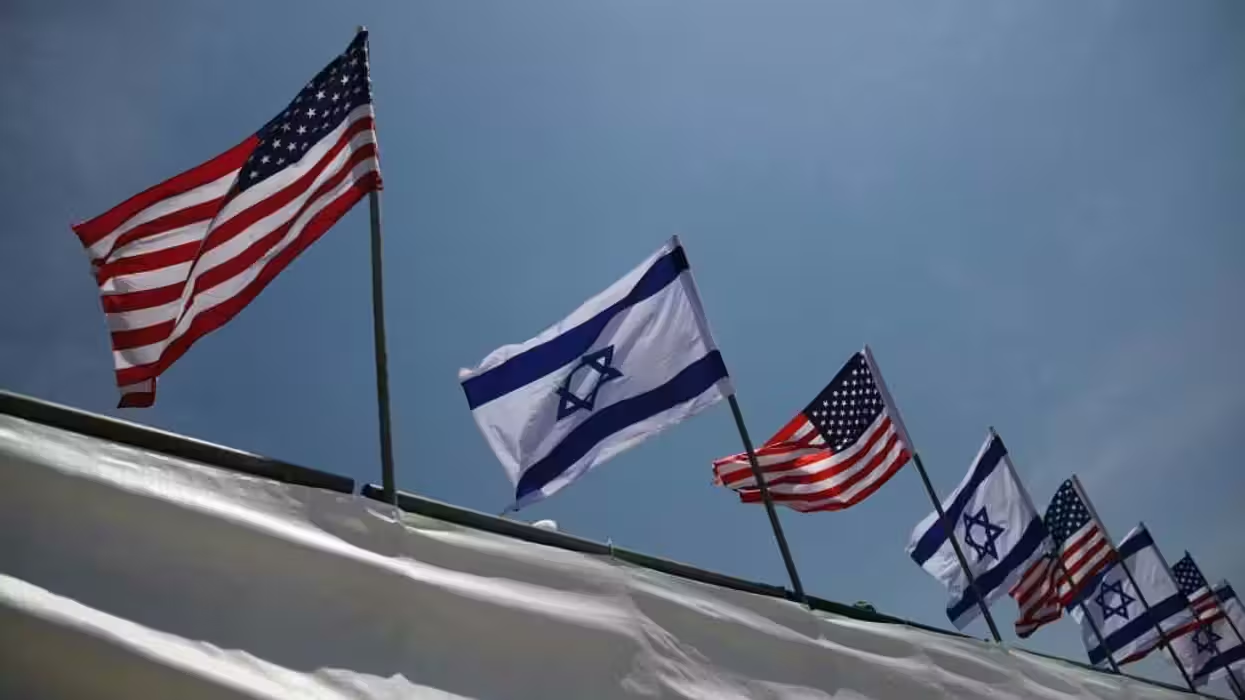
© 2026 Blaze Media LLC. All rights reserved.
Indian Officials Angry After TSA Detains Diplomat for Refusing to Allow Pat Down of His Turban
December 13, 2010
"We have taken it up with the U.S. authorities..."
The Indian government has filed an official complaint with the U.S. after reports surfaced that another of its diplomats was recently subjected to additional TSA screening -- this time because of his turban. And recent comments by Secretary of State Hillary Clinton regarding one of those incidents actually seem to suggest an openness to rethinking diplomatic screening procedures.
It was reported last week that Meera Shankar, Indian Ambassador to the U.S., was given a new enhanced pat down at the Jackson, Mississippi airport in November* because of her baggy sari. Monday it was reported that around the same time, UN envoy Hardeep Puri was detained for more than 30 minutes at the Houston, TX airport after refusing to remove his turban for screening.
"They told me 'We have new procedures that involve extra screening.' I went through the scanner...they took me to separate holding area...the security officer said he wants to pat down my turban...I refused...they came back after 20 to 30 minutes and apologized," Puri told NDTV.
"We have taken it up with the U.S. authorities and the matter is at that stage," Indian Foreign Minister SM Krishna said of the most recent incident, the Daily Mail reports.
The complaints seem to center around the fact that Neither Shankar nor Puri reportedly received special treatment at the airports, and were screened in accordance with TSA procedures regarding baggy clothing and headware.
"After a review of this passenger's screening experience, we determined that the TSA officers in Jackson followed proper standard procedure," agency spokesman Nicholas Kimball said in a statement to AOL News regarding Shankar's incident.
That was confirmed by State Department spokesman P.J. Crowley last Thursday: "The fact that you're a diplomat does not necessarily mean that you are not subject to basic screening as is any other passenger on any particular flight."
Yet that seems in slight contradiction to Secretary of State Hillary Clinton, who may have left the door open for reconsideration of diplomatic screening procedures.
According to AOL, Clinton said she was "concerned" regarding Shankar's screening, and NDTV reported she went as far as to say she's looking to prevent such a TSA-approved screening in the future: "We will be looking into it and trying to determine both what happened and what we could do to prevent such incidents in the future."
The latest incident, coupled with the earlier one, has sparked outrage in India from former diplomats. Those officials, the Daily Mail reports, say the two countries need to meet and resolve the incidents immediately, and are threatening similar procedures will be implemented there if the U.S. does not change its policy regarding diplomats and searches.
Clinton's statements seem to make that a possibility.
Turbans for Indian Sikh men are considered a personal article an area, and can only be removed in public for the most dire of circumstances. It is even prohibited for someone to touch another man's turban.
But private or not, TSA procedures say that wearing baggy clothing, which would include saris and turbans, are grounds for additional screening, meaning both diplomats were "singled out" in accordance with policy. Important to note, however, is that policy does "accommodate" religious headware:
The Transportation Security Administration (TSA) today adjusted its security procedures for headwear and is now including the screening procedures for headwear within the overall category of bulky clothing and not calling it out as a separate category.Removal of all headwear is recommended but the rules accommodate those with religious, medical, or other reasons for whom removing items is not comfortable. Transportation security officers have several options for screening passengers who choose not to remove bulky clothing, including headwear.
These options include:
- Trace portals (where available)
- Trace detection
- Pat downs
Private screening will be offered at several different stages of the screening process.
In November, CAIR, the Islamic rights group, encouraged Muslim women selected for wearing their headscarfs, called hijabs, to try and exploit a loophole which allows them to pat down their own clothing and then have their hands screened and tested. It's unclear if officials performed a similar procedure on Puri.
State Department officials have not yet commented on the incident.
*This information was added for clarity after initial publication.
Want to leave a tip?
We answer to you. Help keep our content free of advertisers and big tech censorship by leaving a tip today.
Want to join the conversation?
Already a subscriber?
Jonathon M. Seidl is a former managing editor of Blaze News and a best-selling author and speaker. His next book, “Confessions of a Christian Alcoholic,” will be released on October 7, 2025.
Jonathon M. Seidl
Jonathon M. Seidl is a former managing editor of Blaze News and a best-selling author and speaker. His next book, “Confessions of a Christian Alcoholic,” will be released on October 7, 2025.
more stories
Sign up for the Blaze newsletter
By signing up, you agree to our Privacy Policy and Terms of Use, and agree to receive content that may sometimes include advertisements. You may opt out at any time.
Related Content
© 2026 Blaze Media LLC. All rights reserved.
Get the stories that matter most delivered directly to your inbox.
By signing up, you agree to our Privacy Policy and Terms of Use, and agree to receive content that may sometimes include advertisements. You may opt out at any time.






